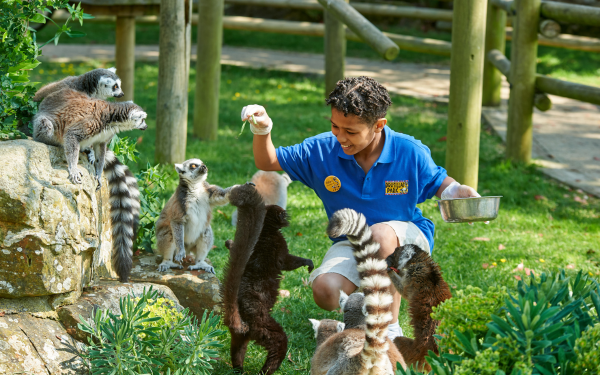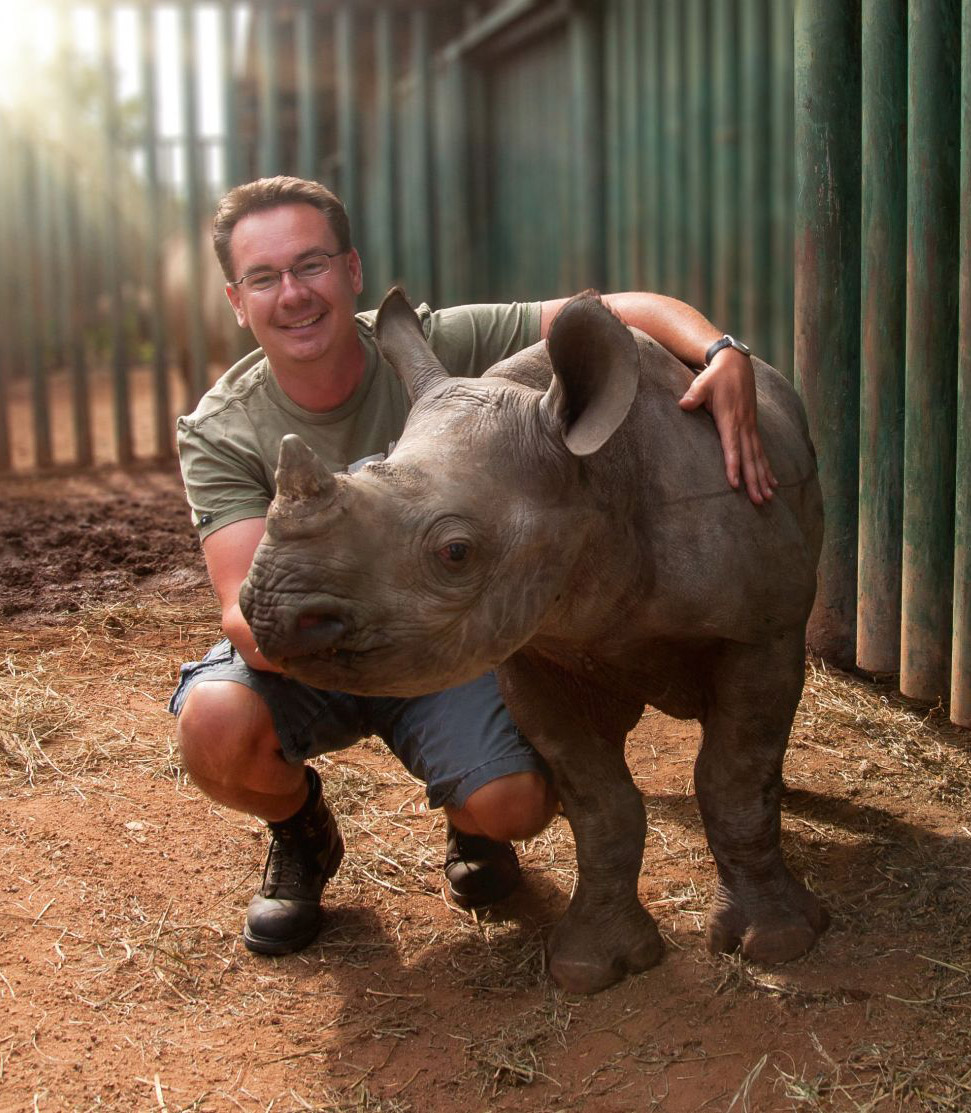How To Become A Zoo Keeper?
페이지 정보

본문
"The greatness of a country and its moral development can be judged by the way its animals are treated." - Mahatma Gandhi
Do you like animals and imagine operating in a zoo? Zoo keepers are type in securing wildlife and taking care of animals. At places like the Zoological Society of London (ZSL), over 20,000 animals get the care they need from experts.
To become a zoo keeper, you need effort, education, and a love for animals. This job is interesting, letting you work with lots of types and aid with important conservation work. If you're into wildlife or animal welfare, zookeeping might be best for you.
Starting your zoo keeper profession suggests learning what's required. This guide will cover education, zookeeper experience, and more. It's all you require to know to start a satisfying zookeeping career.
Understanding the Role of a Zookeeper
Exploring what a zookeeper does exposes a role full of obstacles and benefits. They focus on animal welfare and zookeeper preservation. Zookeepers strive to keep animals healthy and pleased in their care.
Daily Responsibilities and Tasks
A zookeeper's day is filled with crucial jobs:
- Preparing meals that satisfy each animal's dietary needs
- Cleaning up enclosures to keep them tidy and safe
- Supervising animal health and behaviour
- Giving medications and as needed
- Producing activities to keep animals mentally sharp
Working Environment and Conditions
Zookeepers work outside in all type of weather. They handle both indoor and outside areas. The task requires being physically fit and able to handle the needs of caring for animals.
"Being a zookeeper is more than a job - it's a passionate dedication to animal care and preservation."
Types of Animals and Specialisations
Zookeepers can specialise in numerous animal groups:
- Primates
- Big cats
- Marine mammals
- Reptiles
- Birds
Your function might include working with 2-5 different animal types. This requires a lot of understanding and the ability to adapt.
Important Skills and Personal Qualities for Zoo Keeping
To be a leading zookeeper, you require more than simply a love for animals. Your task will be tough and need you to handle animals and people well. You'll also need to comprehend animal behaviour.
What zoos search for in individuals consists of:
- Exceptional patience and psychological durability
- Strong physical fitness and endurance
- Keen observation skills
- Capability to remain calm under pressure
- High level of compassion towards animals
Getting hands-on experience is crucial to mastering this function. You'll need to reveal:
- Advanced understanding of animal care strategies
- Efficiency in animal handling and safety protocols
- Efficient communication with both animals and human visitors
"An excellent zookeeper links science, compassion, and preservation in every interaction with animals."
You should know about animal nutrition, behaviour, and fundamental veterinarian care. The majority of zookeepers learn through training, offering, and continuous learning.
.jpg)
Zookeeper work is not just a task. It's a big commitment to teaching about wildlife and helping preservation. Your passion and hard work will make you stand out in this fulfilling profession.
How to Become a Zoo Keeper
Beginning a profession as a zookeeper requires mindful preparation and education. You need to initially understand the academic needs and training paths. These will turn your love for animals into a task.
Educational Requirements
To be a fantastic zookeeper, you require a strong academic base. The majority of jobs look for certain certifications:
- At least 5 GCSEs at grade 4 or above, consisting of English, mathematics, and science
- A levels or higher education qualifications
- A college degree in biology or animal science
- Level 3 Diploma in Animal Management
Necessary Certifications
Getting unique accreditations can actually assist you in your zookeeper career. Crucial ones include:
- Diploma in Management of Zoo and Aquarium Animals (DMZAA)
- Zookeeping Level 3 Diploma (RQF)
- Animal dealing with certificates
- First aid credentials
Training Programs and Apprenticeships
Getting hands-on experience is key in zookeeper training. Many locations provide fantastic possibilities:
- Unpaid apprenticeships at wildlife parks
- Internship programmes at well-known zoos
- Practical training at places like Colchester Zoo and Dartmoor Zoo
- Offering to get real-world skills
Pro idea: Create an in-depth portfolio to reveal your animal care abilities. It will help you in job applications.
Structure Relevant Experience in Animal Care
Getting hands-on experience is key for those wanting to be zookeepers. The task is really competitive. So, it's crucial to start developing a strong base in animal care.
Your journey begins with finding ways to work directly with animals. This is a tactical step.
"Experience is the best instructor in animal care" - Wildlife Conservation Experts
Here are effective ways to acquire experience dealing with animals:
- Volunteer at local animal shelters to establish fundamental animal dealing with abilities
- Look for internships at wildlife rehab centres
- Check out part-time positions at veterinary centers
- Contact your local zoo for possible volunteer opportunities
Offering is a great method to discover animal behaviour and care. Many zoos and animal shelters are looking for zookeeper individuals who want to learn. These locations offer excellent possibilities to get hands-on experience and reveal your dedication to animal welfare.
Here are some pointers to take advantage of your experience:
- Keep a record of your abilities and interactions
- Connect with experts in animal care
- Request referrals and recommendation letters
- Stay persistent and show your real passion
Remember, useful experience makes you stick out in the zookeeping world. Each time you deal with animals, you discover more. This increases your chances of getting a job in animal care.
Career Pathways and Professional Development
Starting a profession as a zookeeper is exciting. It provides numerous opportunities to grow and specialise. Your journey starts with comprehending the different paths in this field.
Entry-Level Positions
Entry-level tasks in zookeeping are a great start. They offer you hands-on experience. Zoos try to find prospects with:
- Level 2 Diploma in Animal Care (minimum certification)
- GCSEs in English and a scientific topic
- Volunteer experience at animal shelters or farms
Career Progression Opportunities
As you get experience, your profession can grow. You can go up to:
- Junior Keeper
- Senior Keeper
- Group Leader
- Expert Roles
"Continuous knowing and practical experience are crucial to advancing in your zookeeping career."
Specialised Roles
You can also select special locations like:
- Conservation reproducing programs
- Animal training
- Wildlife research
- Educational outreach
About 25% of zookeepers get advanced degrees in zoology or animal conservation. Getting Level 4 qualifications can increase your possibilities for senior roles and research study.
Working Hours and Physical Demands
Ending up being a zookeeper means you'll work more than just routine hours. You'll face difficult physical difficulties and need to be flexible, including weekends and holidays. Zoos are open every day, so you'll often work when others unwind.
"Zoo keeping is not a typical 9-to-5 job-- it's a way of life of dedicated animal care and commitment."
This task is physically demanding. You'll work outside in any weather condition, raising heavy items over 50 pounds. Your tasks may consist of:
- Early early morning feeding schedules
- Cleaning up animal enclosures
- Preparing specialised diets
- Carrying out medical examination
- Preserving intricate environments
Shifts can begin as early as 5 AM and go late into the night. You'll be on your feet most of the time, moving in between animal zones. Weekends and holidays are part of the task, needing great deals of endurance and devotion.
Regardless of the obstacles, this job has fantastic rewards. You'll grow strong, both physically and emotionally. You'll likewise make incredible connections with amazing animals.
Health And Wellness Considerations
Being a zookeeper comes with its own set of obstacles. It's crucial to know how to keep both animals and personnel safe. This implies following rigorous health and safety rules.
Zookeepers face a distinct environment where safety is key. Studies show that health and wellness are now as crucial as the zoo's primary work.
Threat Management Strategies
There are several ways to manage risks in zoos:
- Daily checks of animal enclosures for threats
- Counting animals at the start and end of shifts
- Viewing how visitors act near animals
- Being ready for emergency situations
Animal Handling Safety Protocols
Knowing which animals are most hazardous is crucial. Huge animals like rhinos can be extremely risky. There have been cases where zookeepers got seriously harmed.
Security isn't almost using equipment - it's about knowing animal behaviour and staying alert.
Individual Protective Equipment
Zookeepers need to use the right equipment, consisting of:
- Special gloves for managing animals
- Strong shoes for grip and security
- Clothes that protects versus bacteria
Getting vaccinated versus illness like liver disease B and rabies is also key. It helps keep zookeepers healthy in their tough job.
Salary Expectations and Job Market
Thinking about a career in zoo keeping? It's essential to learn about wages and the task market. The field is growing, with more chances in the UK.
Let's look at what zoo keepers can earn at different phases:
- Entry-level zookeepers begin at about ₤ 14,000 a year
- Qualified ones make between ₤ 16,000 and ₤ 22,000
- Senior zookeepers can earn approximately ₤ 30,000 or more
The job outlook for zoo keepers is great. The sector is expected to grow by 5% in the UK by 2029. This implies around 3,910 new tasks will be available.
"The Association of Zoos and Aquariums supports expert development for zoo keepers," a report says.
Salaries differ based upon several things:

- Experience level
- Specialisation
- Where you work
- The zoo's size and type
While the pay may not be high, the joy of working with animals is valuable. The typical wage is around ₤ 17,000. However, total profits can be in between ₤ 13,000 and ₤ 27,000 a year.
Conclusion
Starting a career in animal care is an interesting journey. It needs commitment, passion, and a love for learning. With over 350 zoos and wildlife locations in the UK, there are lots of job opportunities. You'll get to deal with amazing animals and assist safeguard wildlife.

To be a zoo keeper, you require more than simply love for animals. You should have a mutual understanding of biology, have the ability to interact well, and constantly want to learn more. You'll gain hands-on experience, learn more about animal welfare, and establish a deep respect for nature. About 3,000 people in the UK have found satisfying careers in this field.
Your success in zoo keeping comes from mixing science with a love for animals. Whether you're interested in mammals, birds, or marine life, this job lets you aid with conservation. Every day will bring brand-new obstacles and discovering chances that will improve your skills and knowledge.
If you like animals and wish to help protect wildlife, zoo keeping might be for you. Take on the obstacle, remain curious, and turn your enthusiasm for animals into a gratifying career.
- 이전글Five Killer Quora Answers On Treadmill Home 25.03.01
- 다음글The Underrated Companies To Monitor In The Purebred German Shepherd Industry 25.03.01
댓글목록
등록된 댓글이 없습니다.



